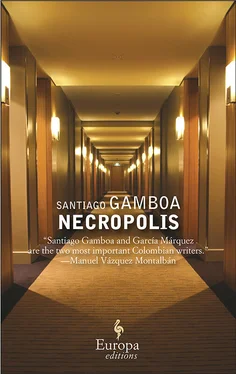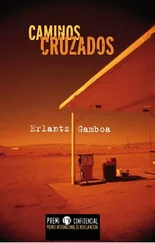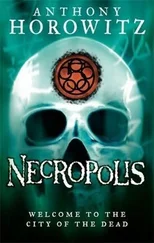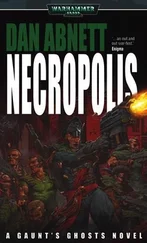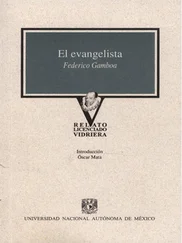With his hands in his pockets, sweating with the emotion and the heat, young Ferenck turned on to the tree-lined Boulevard Gogol, passed the huge bronze stature of the author, and a little farther along, on the left hand side, came to the great temple itself, the headquarters of the Russian Chess Federation. When he entered the hall on the second floor, he thought he was going to faint at the sight of the mirrors and the stucco and the meticulously lined-up tables.
Andrescovich told him that a series of games were being played that afternoon between Grand Masters in honor of Botvinnik, the so-called “Dialectic of Iron,” three times world champion and second longest holder of the title after Alekhine. Young Oslovski sat down in the room on the first floor where the games were commented on and waited for the beginning. With trembling lips he saw the white, cold figure of Karpov come in through reception and start up the stairs toward the hall where the tables were. The games began and Oslovski listened to the commentators, old players and Grand Masters, and after what seemed to him only a moment, although nearly two hours had passed, he asked if he might be allowed to make a comment. He left his chair and went to the chessboard where the positions were analyzed and there gave a rapid demonstration of a better play. The old men listened to his explanation, given in fairly correct Russian, thought about it and approved his hypothesis. Later, during a second game, they asked his opinion about another complex position and again the young man gave a brave and highly original analysis. By now, the wise old men were murmuring among themselves.
The next day, Oslovski played for the first time at the Russian Chess Federation. He felt his fingers tremble as they touched the pieces and slid them over the board and the afternoon sun made slanting lines across the floor. A week later, he played in a youth championship and came second. Then he took part in a number of amateur tournaments and won four of them.
From here things began to move fast, as often happens in the lives of chess players. He played in Leningrad, Prague, Kiev, and Odessa, won a tournament in Budapest and another in Athens. He was runner-up in the all-Poland championship and finally, at the age of seventeen, became national champion, which earned him honors and the possibility of traveling around the world.
Now begins a new chapter in the trajectory of Oslovski. By now he was twenty-three and many things had happened in his life. One of them was the death of his father, and another the illness of his mother, for whom, thanks to his position as Grand Master, he was able to secure the best possible care at Warsaw’s Central Hospital, in the ward for patients suffering from terminal illnesses, which in her case was nothing less than leukemia. In spite of these setbacks, Ferenck concentrated on chess, which was now no longer just a passion but a way of rising through the social ranks in Gomulka’s Poland, in pursuit of which he doubled his concentration and efforts.
He continued to work with his Russian teacher, Andrescovich, but something had started to go wrong with the mechanism. The young Polish master stopped winning tournaments. Instead, he would always come second or third. These were anxious years, and the history of Poland, which had always been sad, seemed to be somehow embodied in this young man full of dreams. And what happens to young men like Ferenck, when they gain a certain fame and their personal lives get in a mess? They generally start to develop a weakness for hard liquor, which they justify by stress, or nerves, or those baleful dusks when the sky of Warsaw fills with a purple light, as if tongues of fire were swallowing the city and the souls of its citizens, and then the glasses succeed one another on the bar counters, filled with transparent, highly concentrated liquids intended to counteract that complicated sense of abandonment in which the mind can find no rest, a glass, knocked back in one go, is followed by a second, then a third, and so Oslovski’s hours started to darken and black clouds covered his soul, presaging bad weather.
The storm lost no time in breaking, in the form of a wire from Warsaw announcing the news he had so feared, “Mother died during night, in her sleep. Come asap.” It had been sent by the director of the hospital and Ferenck received it six days later while he was in Odessa, in an elimination heat for a place in the Interzonal, a step on the road to the World Championship.
When he got to Warsaw, he had to go straight from the airport to the morgue, together with his teacher Andrescovich, to identify a body that was indeed his mother’s, although he could no longer recognize her. She was buried in a ceremony attended by only six people: two directors of the Polish Chess Federation, a nurse from the hospital, the doctor, his teacher, and himself.
It was after the funeral that Oslovski ran away for the first time.
He disappeared from the streets of Warsaw for three months, as if swept away by one of those icy winds from the far north that lash the squares of the city, or as so many friends and enemies of the government died, without anyone ever finding their bodies, and both Andrescovich and the directors of the Polish Federation searched everywhere for him, especially in the cities he most liked to visit: Moscow, Kiev, Prague. They checked the hospitals and the police stations, all to no avail, and remember that I am talking about the Communist era in Central Europe, when it was not so easy to disappear, because everything was under such strict control, and yet Oslovski managed it. After three months, in desperation, Andrescovich decided to make the disappearance public, which he had preferred not to do before in order to avoid a scandal.
And what he had hoped for happened. As soon as it was announced in the newspapers and on television that the chess master Ferenck Oslovski had disappeared, a call came in from the central police station in the seaside resort of Mie˛dzyzdroje to say that the player was staying in a hotel there. Andrescovich immediately traveled to the town and found Ferenck, looking gaunt, haggard, and sad. “I was taking a cure of silence,” was the only explanation he gave his teacher before setting off for the airfield and getting on a Tupolev to Wadowice, where everyone expected the former young prodigy to regain his spirits and return to the chessboard.
He did in fact manage to do so, although slowly, because the game suffers when it is abandoned for too long and the first moves are like those of a sportsman who has spent a whole season out of action. Timid, erratic steps, exaggerated calculations. That was how it was for Oslovski.
Three months later, he tried again and to everyone’s surprise won an international tournament in Athens, taking a substantial prize of ten thousand dollars, which made it possible for him to replenish his depleted savings, because those were still the days when chess players in Eastern Europe had certain privileges but did not earn very much unless they played in the West. He and Andrescovich returned to Wadowice feeling very pleased, but this vein of good luck was short-lived and soon afterwards Oslovski again reverted to his cruise speed, which meant he would always come third or fourth, or occasionally second. That seemed to be his level, and at least it guaranteed him a salary of three hundred zlotys a month, fairly high in comparison with the two hundred and fifty earned by a university professor or the five hundred earned by a highly placed Party official. From that position, he watched the history of the world and chess pass by. He saw the arrival of Spassky and his rise to the heights, he saw the coming of that young devil, the American Bobby Fischer, performing amazing feats and defeating everyone, including Spassky, and he felt angry at himself for admiring such a mean, self-centered character. From his room, following the championship in Reykjavik, he came to the conclusion that chess did not make people better, which again depressed him, so he closed the curtains and did not come out again for a long time.
Читать дальше
